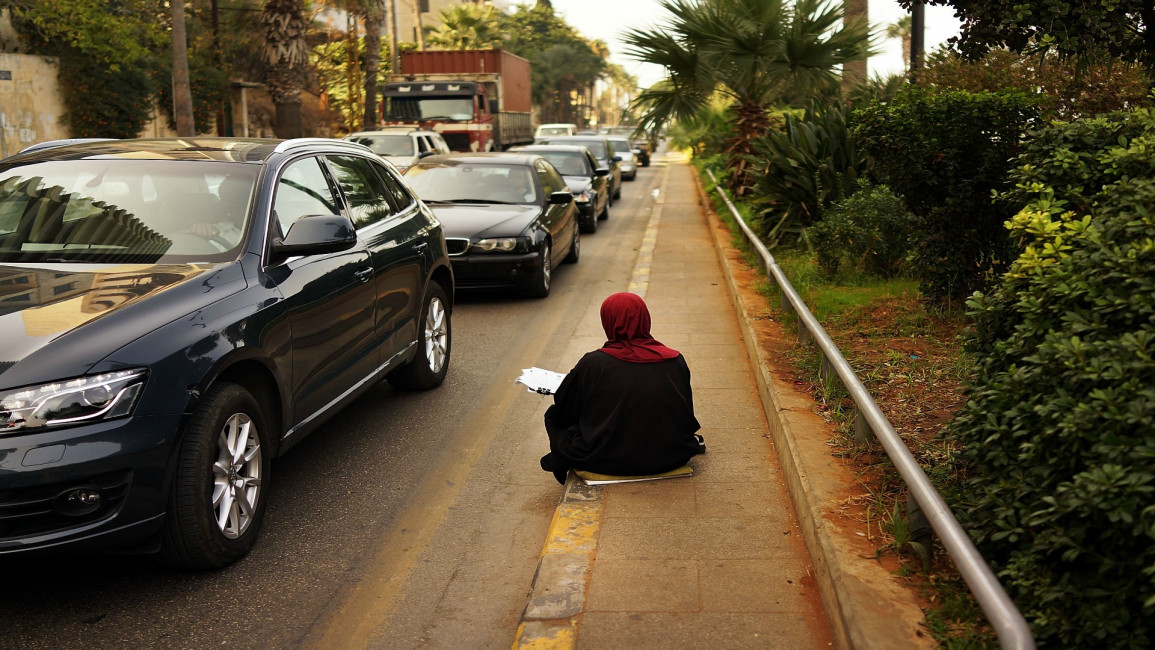
Let's speak out about inequality in the Middle East
A lot of the world has recently been talking about inequality. Inequality, we know, is a fundamental cause of poverty - and a lot of people expect it to exist in the developing world in the poorest countries; but inequality is most prevalent in middle-income countries, and very high degrees of inequality are present in developed countries such as the US and the UK.
Numbers and data generated through Credit Suisse and indices such as the GINI index tell us how to what extent inequality has reached. Oxfam reported in the last fortnight that one percent of the global population owns more wealth than the rest of the world combined. Tax havens, corruption, labour to capital return, financial markets and the oil industry explain this somewhat.
 |
Inequality shouldn't just be a moral concern |  |
Hard data isn't always necessary, however, as a quick look around will throw out profound and stark pictures of inequality to each of us, every day. In the West, the rising numbers of rough sleepers on the street is clearly visible. In certain developing countries, the polarised quality of life from abject poverty to princely opulence begs the question: whatever happened to the trickle-down effect?
One of the largest manifestations of inequality, which has an impact on both the Arab world and the West, is the chronic migration crisis caused by both inequality and the destabilising effect that inequality can cause.
Therefore, inequality shouldn't just be a moral concern, exposing unjust systems and increasing poverty - its impact is much wider.
The Middle East is rife with inequality. While many countries are wealthy and enjoy lucrative industries such as oil wealth, the riches tends to remain in the hands of a few.
There is also a job skills mismatch - so while some human development components, such as education, may be doing fairly well, you may still end up with a market workforce that does not have sufficient available employment, particularly among low-skilled sectors.
Such challenges and frustrations, as recent history suggests, can disenfranchise societies and cause those bearing the brunt of economic injustices to act. This can go one of two ways - developing into a vibrant civil society or lured towards darker elements looking to exploit their vulnerable situation.
States remain vulnerable, too, as those hardest hit by income inequality and poor employment opportunities tend to be those in the youth bracket, who feel they have little to lose in confronting sources of economic and social injustice.
The most cited example of this has been the Arab Spring when a wave of protests took hold of the region, demanding an end to corrupt governance, and for social and economic equality.
However one argues this - as a positive act of destabilising oppressive regimes, or as a negative undetaking, undermining social cohesion - an attitude opposed to the status quo took hold, and it was driven by the youth in response to inequality.
 |
If we accept that radicalisation is more likely among younger elements of society, then we should be very concerned |  |
The recent publication Thomas Piketty's Capital in the 21st Century took this argument forwards and agreed that inequality could have a destabilising effect and was in part responsible for a surge in Middle East terrorism and the emergence of the Islamic State group.
Picketty blames the West for feeding that inequality. Leaving that debate there, however, and focusing on the very basic foundation of the argument, inequality can lead to dissatisfaction - and that is a key step in the cycle that leads to radicalisation.
If we accept that radicalisation is more likely among younger elements of society, then we should be very concerned. The Middle East is experiencing an unprecedented youth bulge, as described by the Brookings Institute.
That means that the largest age bracket of people in the Middle East is between the ages of 15 and 24. Whether these young people are used as a force for good or bad depends very much on how their respective governments deal with them.
If governments turn out inclusive social and economic policies targeted at this age group, then they can positively harness the creative and fresh energy that comes with them. If not, they can either be the instigators of disobedience or be drawn to the violence of others.
Consider the most common IS recruitment tactic - paying recruits a reasonable salary. With no jobs, income, opportunities or hope, joining IS may become a viable option either due to ideological radicalisation or financial despair.
It perhaps needn't be either. Perhaps providing those with few opportunities in their own countries with access to opportunities elsewhere could cancel out the impact that inequality has within state borders.
Perhaps European governments should enter their own radicalisation process and propose this radical idea.
If we opened up our borders earlier: before a crisis starts mounting at the shores of North Africa and boats start sinking in the Mediterranean; perhaps then we wouldn't see the region implode with unprecedented numbers seeking to flee bloody, gruesome and unforgiving conflict.
Perhaps with a little more of a global inclusion policy and long-term approach, the burden of inequality could at least be eased and the world might be, if not a better place, a more stable place.
Sophia Akram is a researcher and communications professional with a special interest in human rights particularly across the Middle East. Follow her on Twitter: @mssophiaakram
Opinions expressed in this article remain those of the author and do not necessarily represent those of The New Arab, its editorial board or staff.




